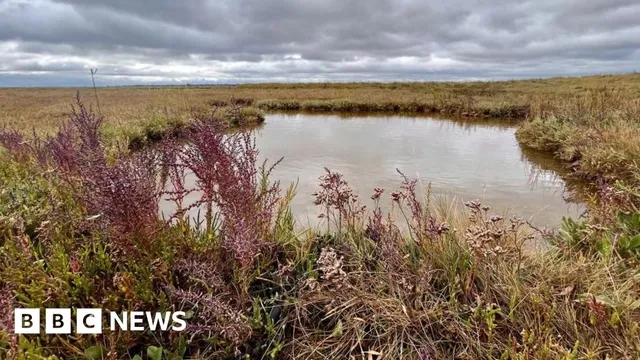
Restoration of Essex Saltmarshes: A Key Climate Action Near Colchester
2024-09-20 07:38- The managed realignment programme at Abbotts Hall created nearly 50 hectares of saltmarsh and intertidal habitat in 2002.
- Saltmarshes are crucial for carbon storage, with an estimated annual storage of 13 million tonnes, and have seen a resurgence of diverse plant and animal species.
- Conservationists stress the need for ongoing protection and restoration of saltmarshes to combat climate change and preserve biodiversity.
Express your sentiment!
Insights
The managed realignment programme at Abbotts Hall, initiated in 2002, has successfully restored nearly 50 hectares of saltmarsh and intertidal habitat along a 3km stretch of the Blackwater Estuary near Colchester. This initiative involved breaching old sea walls, which has not only created new habitats but also contributed significantly to carbon storage, with saltmarshes estimated to store around 13 million tonnes of carbon annually. Conservationists emphasize the importance of these ecosystems, as 85% of the UK's saltmarshes have been lost since the mid-1800s. The restored area has seen a resurgence of diverse plant species, including sea aster and golden samphire, and has become a vital habitat for various fish and bird species. Fish surveys indicate the presence of juvenile European bass and grey mullet, while birdwatchers can spot marsh harriers and short-eared owls among others. This biodiversity is crucial for maintaining ecological balance and supporting wider species. Experts from the Essex Wildlife Trust highlight the role of saltmarshes as key blue carbon habitats, which not only sequester carbon but also provide essential shelter and feeding grounds for young fish. Additionally, these habitats offer flood alleviation benefits to coastal communities, making their preservation critical in the face of climate change. The restoration of saltmarshes is seen as a vital step in combating the climate crisis, with calls for further action to protect these ecosystems. The unique beauty and ecological significance of saltmarshes underscore their value as one of the last wilderness habitats in the UK, fostering a deep connection to nature for those who visit.
Contexts
The restoration of Essex saltmarshes near Colchester is part of a broader climate action initiative aimed at addressing environmental challenges. This effort comes in the wake of increasing awareness of systemic issues in various sectors, including mental health care in Essex, highlighted by a public inquiry in Chelmsford. The inquiry revealed serious concerns following the death of Colin Flatt, an 81-year-old former footballer, emphasizing the need for accountability and improvements in mental health services. Additionally, the community's focus on welfare is reflected in the advocacy for the Suffolk and Essex animal shelter, which may remain open due to the efforts of its 80-year-old founder. This highlights the importance of community resources in addressing both environmental and social issues. The intersection of these events underscores a growing recognition of the need for comprehensive approaches to both climate action and community health, as stakeholders seek to create sustainable solutions that benefit both the environment and public well-being. The restoration of saltmarshes is not only a climate initiative but also a part of a larger narrative about the importance of community resilience and support systems in Essex.